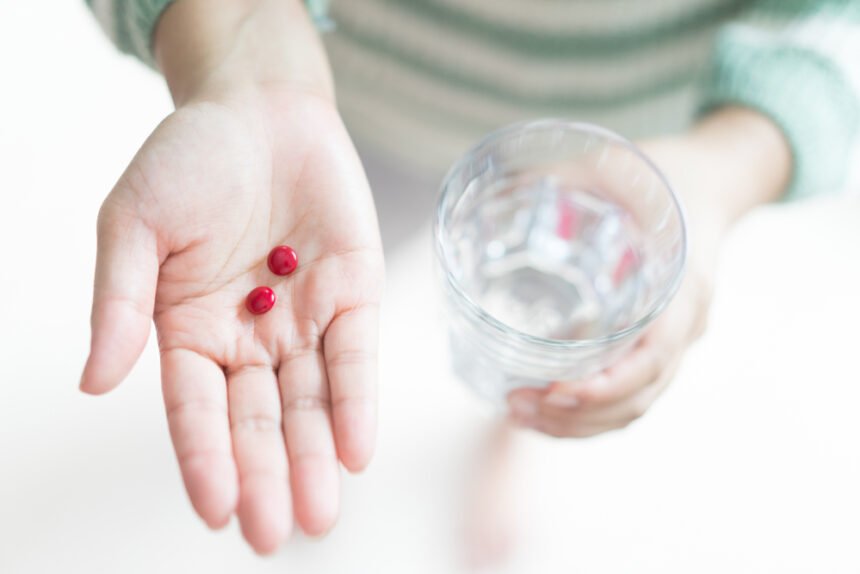Iron is key to the health of many systems – including the cardiovascular one – but as found in a recent study undertaken at Imperial College London, this mineral has both protective and potentially harmful effects on the body. Iron is vital because it carries oxygen around the body. Having too little of it can lead to anemia, but too much can damage some organs, such as the liver. What are a few surprising ways that iron can boost health, and how can you strike the perfect balance?
The Benefits Of Iron
Iron plays a key role in many key systems, including the digestive and immune system, and it also helps regulate body temperature. Iron is typically discussed in terms of its link to hemoglobin – the crucial protein that brings oxygen to various parts of the body – but this mineral is also used in gene regulation, detoxification, DNA production, energy production, and in battling free radicals that cause aging and disease. In the Imperial College London study, researchers found that higher iron levels are associated with a lower risk of high cholesterol. They also protect the arteries from becoming blocked up with fatty substances. Having too much iron, on the other hand, can raise the risk of blood clots and bacterial skin infection.
What Are The Dangers Of Low Iron Levels?
Low iron levels affect around 10 million people in the U.S. Around five million, meanwhile, need supplementation owing to iron deficiency. Anemia is more common in women than men, particularly during menstruation. Pregnant women are also often prescribed supplementation to help boost reserves, as are the elderly. However, in all cases, testing is necessary before supplementation is prescribed. Signs that you may be low in iron or have anemia include tiredness, poor sleep and mood issues.
How Is Iron Deficiency Detected And Treated?
Iron deficiency or anemia can be detected almost instantly through the use of hemoglobin analyzers. In addition to being prescribed iron supplements, people with low levels of iron or those who are anemic may also be prescribed Vitamin C, which aids in iron absorption. Folic acid (which is particularly important for pregnant women) and Vitamin B12 often form part of a multifaceted approach to curbing anemia, as does diet. In terms of diet, the consumption of high-iron foods is often recommended. The list includes meat, fish, beans and lentils, potatoes, dark green leafy vegetables, wholegrain and enriched breads and fortified cereals. It is important to follow a recommended nutritional regimen to ensure you are obtaining required levels of iron and other key minerals in your daily diet.
Iron Supplementation Can Provide Cognitive And Physical Benefits To Anemic Children
A study published in the Canadian Medical Association Journal found that giving daily iron supplements to primary school children with anemia could have physical and cognitive benefits. Globally, around 25% of children of school age are anemic, and the cause of this condition in around 50% of all cases is iron deficiency caused by a lack of iron in the diet, as well as parasites such as hookworm. Scientists at The Royal Melbourne Hospital and the Faculty of Medicine, Dentistry and Health Sciences found that iron supplementation can improve IQ scores in school-aged children and also improve growth. They stated, “Daily iron supplementation decreased the prevalence of anemia by about 50% and reduced the prevalence of iron deficiency by 79%.”
New Findings On Iron And Aging
New findings are constantly being made on the importance of iron to human health. On July 16, 2020, University of Edinburgh researchers published a study indicating that keeping blood iron levels at a healthy level is key to slowing down aging. The researchers looked into genetic data obtained from over one million people. They found that those with good (but not high) levels of iron in the blood had a longer lifespan and a lower likelihood of heart disease, dementia and cancer. They concluded that keeping iron levels in check could prevent age-related damage. Lead researcher, Dr. Paul Timmers stated, “Our findings on iron metabolism might also start to explain why very high levels of iron-rich red meat in the diet have been linked to age-related conditions such as heart disease.”
Iron has an important role to play in the health of adults and children alike. A lack of iron is linked to serious conditions like anemia, which can cause fatigue and sleep problems. It is important to have your iron tested before taking supplements, since too much iron can have a detrimental effect on your heart health. Testing is quick and easy, and results are available in a matter of seconds. If your doctor finds that your levels are low, you may be prescribed supplements and/or the consumption of a healthy diet that includes iron-rich sources such as green, leafy vegetables and fortified foods.

